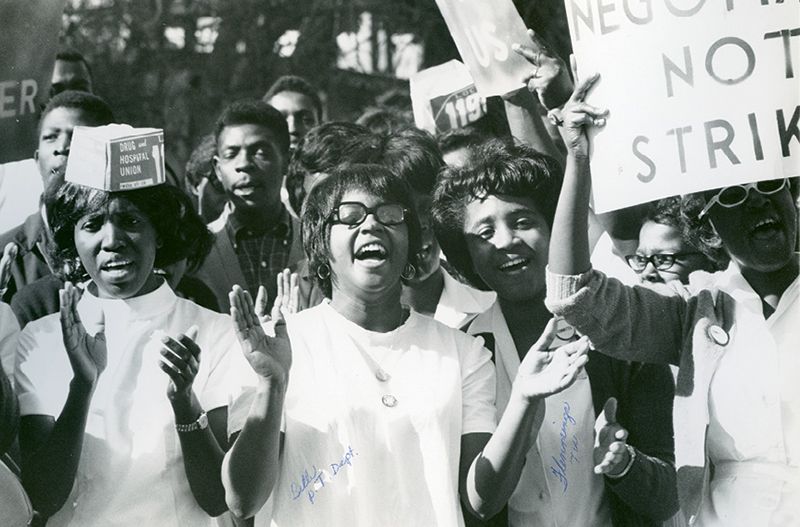The Hospital Workers’ Movement began 50 years ago this March

Employees protesting working conditions at Charleston’s Medical College Hospital in 1969
Fifty years ago, in March of 1969, Charleston witnessed events that challenged and changed the gender and racial status quo. Enraged by unfair firings and demanding the same wages and respect granted to their white peers, hundreds of mostly African American female workers in the hospital at the Medical College (as the Medical University of South Carolina was then called) walked off the job. Employees at the Charleston County Hospital followed suit.
A nurse’s aide, Mary Moultrie—who had worked at a unionized hospital in New York City—galvanized her followers. Encouraged and led by local activists Bill Saunders and Rosetta Simmons and supported by healthcare union Local 1199B and speakers like Southern Christian Leadership Conference president Ralph David Abernathy (jailed twice in Charleston) and Mrs. Coretta Scott King, the protestors held firm. Local and national politicians and hospital administrators did too.
The National Guard was called in as tensions mounted, and the city went under curfew. Strike organizers responded by holding nighttime demonstrations that led to hundreds of arrests. Charleston was harboring the tensest racial situation in the country, said the national news. With hits to the economy and threats from the longshoremen to strike in solidarity, the Medical College gave in after 100 days; the county hospital took three weeks longer.
While unionization was not allowed, the protesters still won, with equity in pay; more respect in the workplace; and a cultural shift in the hospitals, as well as in the city and state governments. The first African Americans to serve in the legislature since Reconstruction were elected the very next year. A 1970 documentary titled I Am Somebody—the proclamation workers chanted in the streets—records the victories.
Photograph courtesy of the Waring Historical Library, MUSC, Charleston, SC